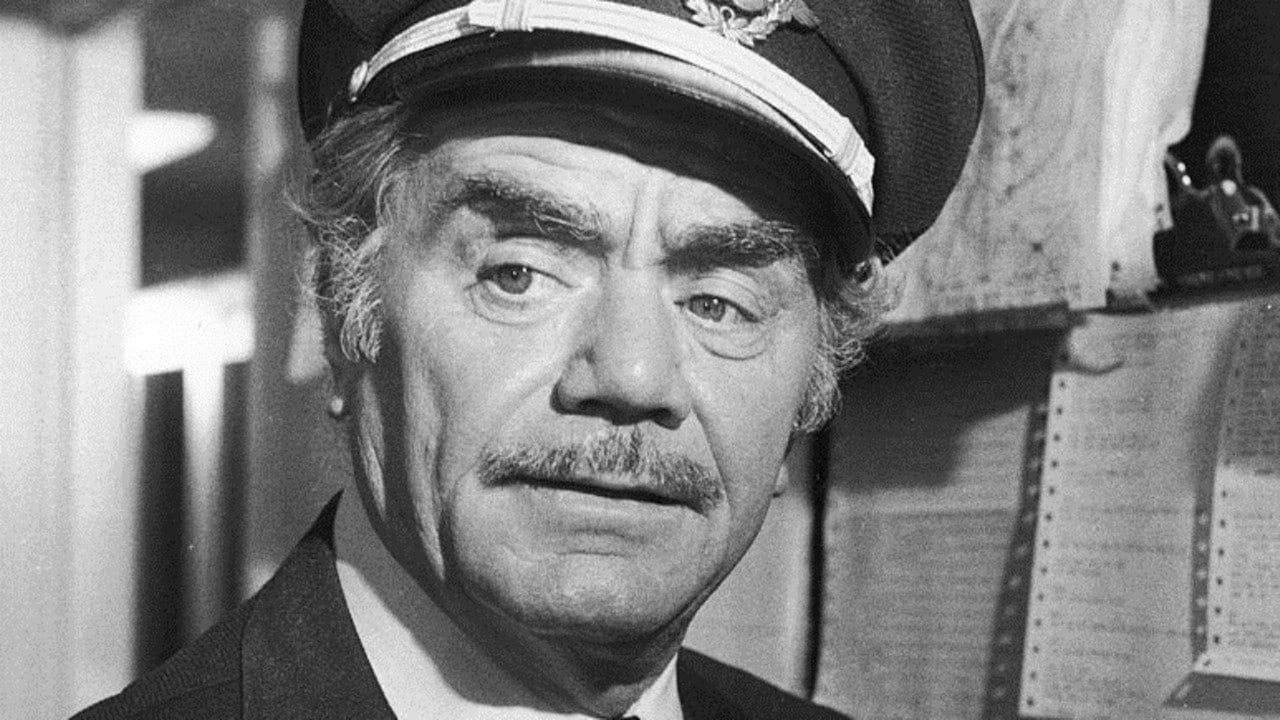Roy Hart
If you're interested in the topic at hand, you should just watch it and judge yourself because the reviews have gone very biased by people that didn't even watch it and just hate (or love) the creator. I liked it, it was well written, narrated, and directed and it was about a topic that interests me.
Robert J. Maxwell
These disaster movies almost always start the same way. People involved in the coming catastrophe are just getting out of bed and ready for the day. In this case it's the airline pilot, bulky Ernest Borgnine (R.I.P.) and his pretty wife, Carol Rossen, tumbling around in bed with their children. Usually, the characters are cheerful and in love, as this unlikely couple are. Except that Rossen has a strange feeling -- "Don't go out today." That's typical too, but usually occurs later than the first two minutes. However, this made-for-TV production is anxious to get to the calamity and its hallucinatory aftermath, so we have to rush a little bit through Borgnine's shower and shave. Nice to see Kim Basinger in an early role. She was my supporting player in the poetic masterpiece, "No Mercy." Flight 401 leaves New York for Miami but in approaching the airport they notice a light on the panel indicating that the nose wheel is not down. A frequent cause is that the light bulb or its contact is defective, more of an irritation than a cause for alarm. The captain puts the plane on autopilot and bends over to help the engineer extract the noisome bulb. He sends co-pilot Borgnine down into the electronic bay to try to visualize the nose wheel. Meanwhile the airplane is descending from its assigned 2,000 feet over the Everglades, ineluctably, until it flies at cruising speed directly into the swamp and crashes.The film doesn't make clear how the accident happened, being more interested, I suppose, in the human drama. What happened is that the autopilot, once set, keeps the airplane at a steady altitude and direction. But the controls are sensitive to touch, in case the pilot has to yank them quickly, and the autopilot is instantly and automatically disengaged. Someone fiddling with the light or on his way to the electronic bay brushed against the controls and disengaged the autopilot, so the airplane began a slow descent. As the altitude decreased to dangerous levels, a signal -- chimes -- was sounded but no one heard it because they were busy elsewhere. It was a juxtaposition of unfortunate events.The dialog is predictable. Borgnine is lying in a hospital bed, dying, his wife and a priest at his side, and he gasps out his last words: "I love you." The writer responsible for this garbage is Robert M. Young. But every once in a while, when no one is looking, he unbuttons and slips in a droll line or two. "Money can't buy everything -- it can't buy poverty." And, "So now you're the perfect company man?" "Well, nobody is perfect." And, "Jordy, that's like saying, 'Aside from that, Mrs. Lincoln, how was the play?'" The irregular appearance of Borgnine's ghost on later flights turns frightening. At first he's glimpsed sitting silently in a passenger seat, then he begins to issue warnings and proclamations. Finally, it becomes irritating enough that a séance of the principal participants lays the ghost.Was the apparition "real"? The first college classroom I ever entered was at San Mateo Community College at Coyote Point, just south of San Francisco International. The class was in introductory psychology and the instructor, Dorothy Miller, gave us a brief questionnaire. One of the questions was, "Do you believe in ghosts?" My answer was, "No." It was the wrong answer. The correct answer was, "Undecided." I learned a lot from that one question: namely, to keep an open mind. That said, it has to be added that sometimes the imagination hijacks our perception. My forthcoming volume -- "Beware The Naked Boogeyman" -- explains it all.
calvinnme
...and that's make a quality film just for the small screen with a good cast that people have in their fondest memories decades later. I watched the original broadcast of this film in early 1978 when I was still in college and it really moved me, this friendly ghost of the good natured middle-aged flight officer that got the family he thought he'd never have in mid-life only to have that life taken from him in a crash. This movie was televised several years later in the late 80's and I watched it again and I was surprised at what I did not notice the first time around in 1978 that I did notice ten years later. So many of the people who initially see the ghost are what we now call flight attendants, but in 1978 they were called stewardesses, and they were all female. Initially the reports of Don Repo's ghost were discounted not only because it was bad for business but because it was the stewardesses - or "stews" as they call them in the film - that were seeing the ghost. There were many comments in the film that would be considered very sexist today about hysterical females, and nobody bats an eye at these statements. Only after some of the male members of the crew see the ghost does anyone start to take this phenomenon seriously. It's just funny how standards evolve over time - in this case attitudes towards women - and you don't really notice until you're plunged back into a time capsule and see how much things have changed. I'd strongly recommend this one if it ever airs again. It's in the same boat as films like "J.T." (1969), "The Great Houdini" (1976), "Coffee Tea or Me"(1973), "The Ballad of Lizzy Borden" (1975), "The Neon Ceiling" (1970), and "Legend in Granite" (1973), also starring Ernest Borgnine. These are all made for TV films that were popular at the networks after studio films became too expensive to televise and before cable fractured TV audiences. They are as good as or better in quality than many feature films that are released today. Sure, some of them are quite dated in many ways, but that is part of the nostalgia for many of us who remember the original broadcast.
Peter Makres
This very intriguing story about Eastern Airlines flight 401 which crashed in the everglades, is a really good movie that deserves a look for any who have not seen it. I taped it many years ago and occasionally take another look at it, as I did last evening. Apparently this was a made for TV movie, and is not available on DVD. I wish it was! The movie really gives one pause to think about all the things we really don't realize or understand about life and death. It contains a good cast and is acted well. Among the familiar faces are Ernest Borgnine and Russell Johnson of Gilligan's Island fame. If anyone hears of it becoming available, please let me know.

